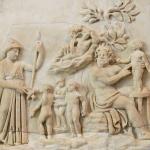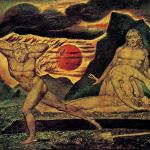Do you know what an epiphany is? An epiphany is when suddenly and unexpectedly, someone makes a new discovery or experiences a dramatic realization in the field of science, religion, philosophy, and elsewhere. This post highlights the importance of cultivating a prepared mind that pays attention to epiphanies. Otherwise, we will likely miss them.
Epiphanies and the Prepared Mind
Scientist Louis Pasteur once made the following assertion: “In the fields of observation chance favors only the prepared mind.” How prepared are you and I to make breakthrough observations involving epiphanies in serendipitous events?
Science and Serendipity
It is fascinating to note scientists who speak of chance or serendipity, which involves new disclosures and scientific advancement. Refer here and here. One of the articles I referenced makes mention of several such serendipitous scientific disclosures, highlighting first and possibly foremost Alexander Fleming’s discovery of penicillin. Samira Shackle writes:
Perhaps the most famous accidental discovery of all is penicillin, a group of antibiotics used to combat bacterial infections. In 1928, Scottish biologist Alexander Fleming took a break from his lab work investigating staphylococci and went on holiday. When he returned, he found that one Petri dish had been left open, and a blue-green mould had formed. This fungus had killed off all surrounding bacteria in the culture. The mould contained a powerful antibiotic, penicillin, that could kill harmful bacteria without having a toxic effect on the human body.
At the time, Fleming’s findings didn’t garner much scientific attention. In fact, it took another decade before this drug was available for use in humans. Retrospectively, Fleming’s chance discovery has been credited as the moment when modern medicine was born.
I could imagine a scenario where Fleming might have been frustrated that the Petri dish had been left open, leading to the formation of the blue-green mould. He could have easily discarded the dish and started all over again. But he was keenly observant. He must have cultivated “a prepared mind.”
Spirituality and Serendipity
Something similar happens in the realm of faith. However, I would commandeer and reframe the opening line by Pasteur to read: “In the field of spiritual observation, providence favors only the prepared mind.”
Simeon and Anna
I think of Simeon and Anna who Luke, a medical doctor by trade, refers to in the account of Jesus’ dedication in the Temple. Luke informs us that when it came time for Jesus’ parents to dedicate Jesus in the Temple, Simeon and Anna appear on the scene:
Now there was a man in Jerusalem called Simeon, who was righteous and devout. He was waiting for the consolation of Israel, and the Holy Spirit was on him. It had been revealed to him by the Holy Spirit that he would not die before he had seen the Lord’s Messiah. Moved by the Spirit, he went into the temple courts. (Luke 2:25-27; NIV)
There was also a prophet, Anna, the daughter of Penuel, of the tribe of Asher. She was very old; she had lived with her husband seven years after her marriage, and then was a widow until she was eighty-four. She never left the temple but worshiped night and day, fasting and praying. (Luke 2:36-37; NIV)
Joseph, Mary, and Baby Jesus
They appeared on the scene, not by chance, but on account of living with prepared minds and hearts. The text informs us Simeon was waiting for the Lord to fulfill what he had promised to him and Anna never left the Temple. Their prepared minds and hearts made it possible for them to see God’s glory in this unassuming baby with equally unassuming parents. Both praised Jesus to his parents and filled their hearts with wonder on account of what they shared (Luke 2:33). Jesus’ parents were paying attention.
Simeon blessed Joseph and Mary and informed her: “This child is destined to cause the falling and rising of many in Israel, and to be a sign that will be spoken against, so that the thoughts of many hearts will be revealed. And a sword will pierce your own soul too.” (Luke 2:34-35; NIV) For her part, Anna praised God “and spoke about the child to all who were looking forward to the redemption of Jerusalem.” (Luke 2:38) These are dramatic, staggering claims and hopes to place on the future of any person, especially on a little baby who to the naked eye was apparently no greater than “blue-green mould” on a Petri dish.
The Disciples with Jesus on the Road to Emmaus
I fear that I am more like the disciples on the Road to Emmaus than Simeon and Anna in the Temple. Following Jesus’ resurrection, the two disciples were traveling to Emmaus when Jesus appeared and accompanied them on their journey. However, they did not recognize him: “As they talked and discussed these things with each other, Jesus himself came up and walked along with them; but they were kept from recognizing him.” In all fairness, the text tells us they were “kept from” recognizing him. (Luke 24:15-16; NIV).
To their credit and/or God’s providential mercies, they recognized Jesus later on in the account. The striking thing about their recognition is when he took bread, gave thanks to God, broke it, and started passing it to each of them. “When he was at the table with them, he took bread, gave thanks, broke it and began to give it to them. Then their eyes were opened and they recognized him, and he disappeared from their sight. They asked each other, “Were not our hearts burning within us while he talked with us on the road and opened the Scriptures to us?” (Luke 24:30-32; NIV)
Epiphanies: Surprising and Unexpected
Epiphanies come in various shapes and sizes. It may be a Petri dish with blue-green mould in a lab, a little baby born to common parents appearing in the Temple, or a fellow traveler on his way to a tiny village called Emmaus who later breaks bread. One thing’s for certain, epiphanies appear in surprising and unexpected ways.
In what follows, I will reflect on reasons why we miss out on epiphanies in our daily lives. By being attentive to these problematic tendencies, we will be better prepared to experience epiphanies when they make their sudden appearance.
Missing Out: Hasty Predictions
We often miss out on epiphanies, and for various reasons. Often we are looking with the wrong perspective that fails to really see. We already have our minds set on what kind of discoveries we will make, how we will make them, where they will appear, and when. Somehow we confuse preparation with prediction. We need to prepare our minds for epiphanies, but not hastily predict what and how everything will play out.
Missing Out: Premature Closure
Another reason why we often miss out on epiphanies is because we reject at the outset worldviews and systems of thought that we find objectionable, and without having made a full inquiry. In our secular age, a great many people may make room for epiphanies in the realm of the natural sciences, but nowhere else. (No doubt, the reverse is also true.) They contend that epiphanies can only occur where instrumental reason is in play, where objectification of phenomena is the only legitimate form of inquiry, and that life, including human life, is exclusively material. Such objectification and reductionism gives way to fragmentation in the realm of aesthetics, dramatically limiting the sense of wonder and new disclosures in the universe at large.
The Immanent Frame, Leap of Faith, and Open Space
Charles Taylor argues in A Secular Age that we all live in “the immanent frame.” (542) He readily acknowledges that we can go about our daily business without reference to divine intervention and a transcendent realm, and where instrumental reason and scientific objectification rule the day. But it need not be so. Taylor argues that if we are completely honest and operate humbly and openly, we will guard against dogmatism that excludes either the closed or open reading of immanence. The closed reading believes there is “no beyond” whereas the open reading involves belief in God. (550-551) Taylor’s “understanding of the immanent frame is that, properly understood, it allows of both readings, without compelling us to either. If you grasp our predicament without ideological distortion, and without blinders, then you see that going one way or another requires what is often called a ‘leap of faith’.” (550)
We must live in what Taylor calls the “Jamesian open space.” Operating in this open space involves intellectual honesty and an awareness that faith is required no matter which way one turns—toward an open or closed view of reality in the immanent frame. (551) At the same time, we must seek to provide the most plausible, all-encompassing account of reality from our particular vantage point.
Religion and Disenchantment
One thing we must not do, though, is confuse religion with enchantment in our disenchanted age. That is an “illusion” that gets in the way of open discourse. As Taylor makes clear, “disenchantment is the dissolution of the ‘enchanted’ world, the world of spirits, and meaningful causal forces, of wood sprites and relics. Enchantment is essential to some forms of religion; but other forms—especially those of modern Reformed Christianity, both Catholic and Protestant—have been built on its partial or total denial. We cannot just equate the two.” (553) God provides meaning, purpose, and epiphanic disclosures in a variety of ways not associated with or reduced to an enchanted outlook.
Aesthetic Experience, Epiphanies and Religious Belief
In his discussion of wonder, Taylor reasons that the sense of wonder that atheists experience “doesn’t exclude the possibility that something similar, perhaps even richer, might be recovered in the register of religious belief,…” He goes on to state that “there are other modes of aesthetic experience, whose power seems inseparable from their epiphanic nature, that is their revealing something beyond themselves, even beynd nature we we ordinarily know it.” (607; italics added) Paying attention involves remaining open to possibilities of new disclosure or epiphanies in nature and daily experience, and which open us up to that which transcends life as we know it. The sense of wonder or aesthetic experience involving epiphanies of various kinds is one place where science and religion meet.
Missing Out: Over-Stimulation
One other way in which we miss out is that we often find ourselves easily distracted by so much over-stimulation. We do not train our minds to pay attention to what is going on all around us in view of what is going on everywhere else.
I have witnessed this even in the medical community, where medical leaders do not listen to staff working most closely with patients. For whatever reason, they do not often listen to those in the bedside trenches, as in my traumatically-brain injured son Christopher’s care. Perhaps it results from over-stimulation involving various responsibilities in the arena of increasing specialization and inordinate demands on their schedules.
But our family medical consultant, Dr. Robert Lyman Potter, a retired medical doctor, professor of medicine, and emeritus medical ethicist, is old-school. He has a bedside manner and claims that nurses and no doubt other bedside caregivers have saved him from countless errors in tending to patients for optimal care. I asked him how he trained himself along these lines. He credited his late mother for giving him the impetus. She once said, and he never forgot: “Robert, pay attention.”
Paying Attention
I am not a very fast learner. Upon seeing the blue-green mould in the Petri dish, I immediately want to throw it out and start from scratch. I easily see problems as only problems, such as when Christopher does not respond the way I want to medicine or therapies of various kinds. But as Dr. Potter instructed me, Christopher is still responding. It may not be what I expect or want, but I need to pay attention. I just might find I’m onto something, as my son leads the way.
So it is with Jesus. He doesn’t always respond the way I wish. In fact, that is almost always the case! But if I step back and wait prayerfully, preparing my mind and watching patiently, I might just experience epiphanies. Like the disciples who met Jesus on the Road to Emmaus, I may just find that it is when the ever-unassuming, broken and resurrected Jesus, breaks the bread that I will see him most clearly, including in my son’s traumatically brain-injured life. Who knows what new horizons might open up and what we might discover if we will simply stay alert and pay attention?



















